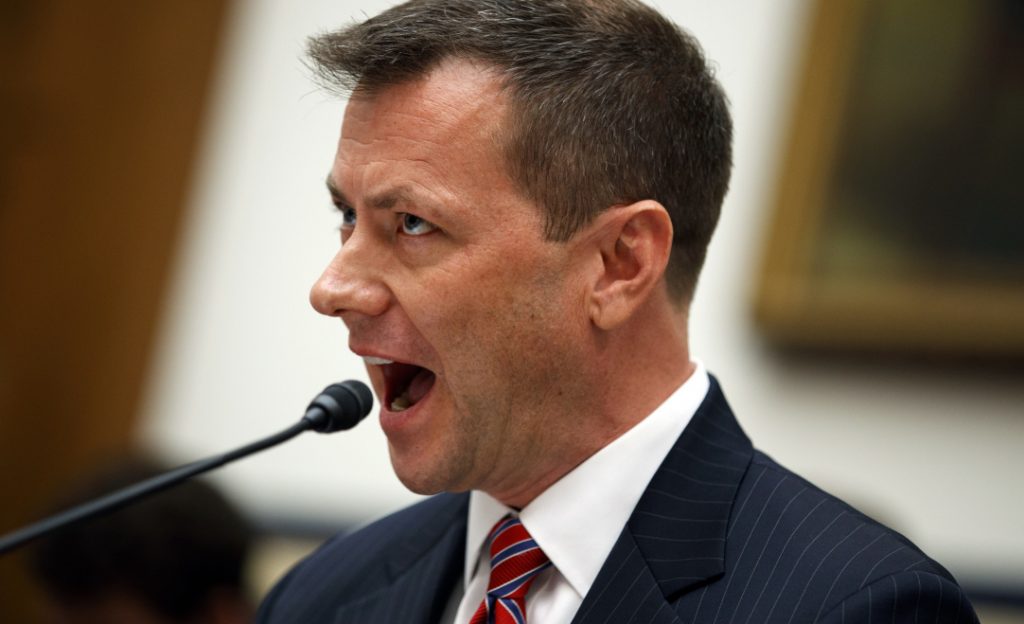
Tempers boiled over on Capitol Hill on Thursday as Peter Strzok, the FBI official at the center of President Trump’s attempts to discredit special counsel Robert Mueller, testified before a joint meeting of two House oversight committees. With all its yelling and interruptions, the hearing was a fitting coda to the hyperpartisan farce of an investigation that House Republicans have conducted into the FBI and Mueller’s Russia probe.
Republicans spent hours parsing text messages and waving documents in the air. But all of it, just like most of the broader House investigation, was a distraction from this central point about the conspiracy narratives the president and his defenders have been cooking up about the FBI: If the agency had been trying to harm Trump’s campaign, agents could have released damaging information on pro-Trump Russian interference before Election Day – and they did not.
The investigators certainly had a lot they could have spilled. “In the summer of 2016, I was one of a handful of people who knew the details of Russian election interference and its possible connections with members of the Trump campaign,” Strzok said. “This information had the potential to derail, and quite possibly, defeat Trump. But the thought of exposing that information never crossed my mind.”
Whether you believe Strzok’s account of what he was thinking, the fact is that the FBI said little about Russian meddling before Election Day 2016. There simply was no effectuated plot to harm Trump’s electoral chances.
For his part, Strzok could not argue his way out of responsibility for his now-famous 2015 and 2016 text messages expressing strong anti-Trump views, as well as criticisms of other 2016 presidential candidates. Yet the messages are not proof of anything other than Strzok’s personal feelings – and, in committing them to writing on company equipment, his poor judgment.
Republican arguments presumed that Strzok’s opinions were tantamount to corrupt behavior. As Lawfare’s Susan Hennessey, a former National Security Agency lawyer, put it, “What is actually on display here is House GOP members demonstrating that they cannot even conceive of the possibility someone could place duty and institutional integrity over base political and personal interests.”
In the end, the hearing did more to harm Congress and the FBI than it did to expose wrongdoing. In that way, it is much like the rest of the House Republican Russia investigation. Oversight panels have devolved into partisan conspiracy machines racked by political bickering. The result is needless harm to the FBI just when the agency should be focused on preventing more foreign attacks on the nation’s democracy.
Strzok is not the perfect messenger, but he was right about this message: “Russian interference in our elections constitutes a grave attack on our democracy,” he said. “Most disturbingly, it has been wildly successful – sowing discord in our nation and shaking faith in our institutions. I have the utmost respect for Congress’ oversight role, but I truly believe that today’s hearing is just another victory notch in (Russian President Vladimir) Putin’s belt and another milestone in our enemies’ campaign to tear America apart.”
Comments are no longer available on this story